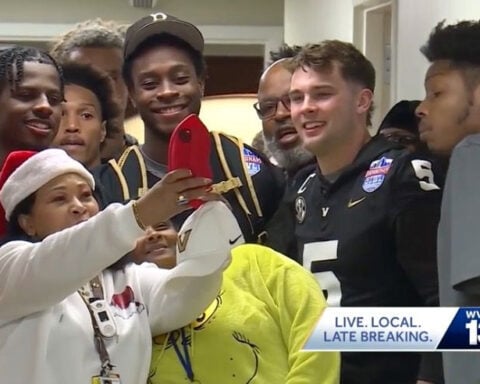The phenomenon known as "cousin face" — where strangers' faces seem oddly familiar — has gained popularity on social media, but experts say it's rooted in how the human brain processes and recognizes facial features.
While not a formal scientific term, "cousin face" describes the experience of thinking you recognize someone you've never met or being repeatedly mistaken for someone else. Researchers say this occurrence stems from the brain's innate ability to detect and remember faces.
"Our brains are tuned to pick up on familiar patterns, which helps us navigate social interactions more smoothly," said Cheryl Groskopf, a licensed therapist and psychologist.
A 2022 study from Cedars-Sinai in Los Angeles found that certain cells in the amygdala trigger memory-making activity when eyes scan a face.
Jessica McCarthy, a clinical neuropsychologist, explained, "These cells, appropriately known as "face cells," appeared to activate only when people were looking at faces." These cells then activate brain waves in the hippocampus, "which is a key part of the brain responsible for information processing and memory formation," McCarthy says.
Essentially, our brains are just plain wired to detect and remember faces — and in turn, perhaps, to seek memory connections in those faces even when they may be false ones.
Experts believe this ability likely evolved as a crucial social skill to help humans navigate complex tribal and familial relationships.
"It's a great example of how our brains use shortcuts and patterns to make sense of the world," said clinician and sociologist Natalie Rosado. "Our brains are constantly trying to match new information with existing patterns."
The concept of an "average face" in psychology may also contribute to the "cousin face" phenomenon. Studies have shown that people tend to find faces more attractive when they're closer to the average of all faces they've seen.
"So a 'cousin face' might be tapping into that same idea: a face that's familiar because it's somewhat 'average' in a comforting way," Rosado said.
Experts emphasize that "cousin face" is distinct from prosopagnosia, or face blindness, a neurological condition where individuals cannot recognize familiar faces. While "cousin face" describes seeing familiarity in strangers' faces, prosopagnosia involves an inability to recognize even well-known faces.
However, there is a related medical condition called hyper-familiarity for faces (HFF) syndrome, a rare disorder in which unfamiliar people or faces appear familiar. Some individuals, known as "super-recognizers," possess a unique, genetically predisposed ability to recognize and remember faces.
Rosado says the current popularity of the term "cousin face" on social media platforms like TikTok reflects shared human experiences.
"It's validating to discover that something you thought was just a quirk of your own perception is actually a common experience," she said.
While primarily anecdotal, the "cousin face" phenomenon aligns with a scientific understanding of how facial recognition interacts with memory processes in the human brain.

 Peru declares environmental emergency after oil spill
Peru declares environmental emergency after oil spill
 The strike against Amazon is over but Teamsters warn: ‘Stay tuned’
The strike against Amazon is over but Teamsters warn: ‘Stay tuned’
 Putin says there is no time to sign new Ukraine gas transit deal this year
Putin says there is no time to sign new Ukraine gas transit deal this year
 Iran's Pezeshkian to visit Moscow Jan 17, RIA reports, citing Iranian envoy to Russia
Iran's Pezeshkian to visit Moscow Jan 17, RIA reports, citing Iranian envoy to Russia
 Manmohan Singh, India’s former prime minister, dies aged 92, says hospital
Manmohan Singh, India’s former prime minister, dies aged 92, says hospital
 Column-Why US Congress restored Social Security benefits for public-sector retirees: Mark Miller
Column-Why US Congress restored Social Security benefits for public-sector retirees: Mark Miller
 Pat Riley says the Miami Heat will not trade Jimmy Butler
Pat Riley says the Miami Heat will not trade Jimmy Butler
 ‘Wicked’ will make its streaming debut on New Year’s Eve, with deleted and extended scenes
‘Wicked’ will make its streaming debut on New Year’s Eve, with deleted and extended scenes
 Detroit Red Wings fire coach Derek Lalonde, name Todd McLellan as his replacement
Detroit Red Wings fire coach Derek Lalonde, name Todd McLellan as his replacement
 Getty Images
Getty Images






